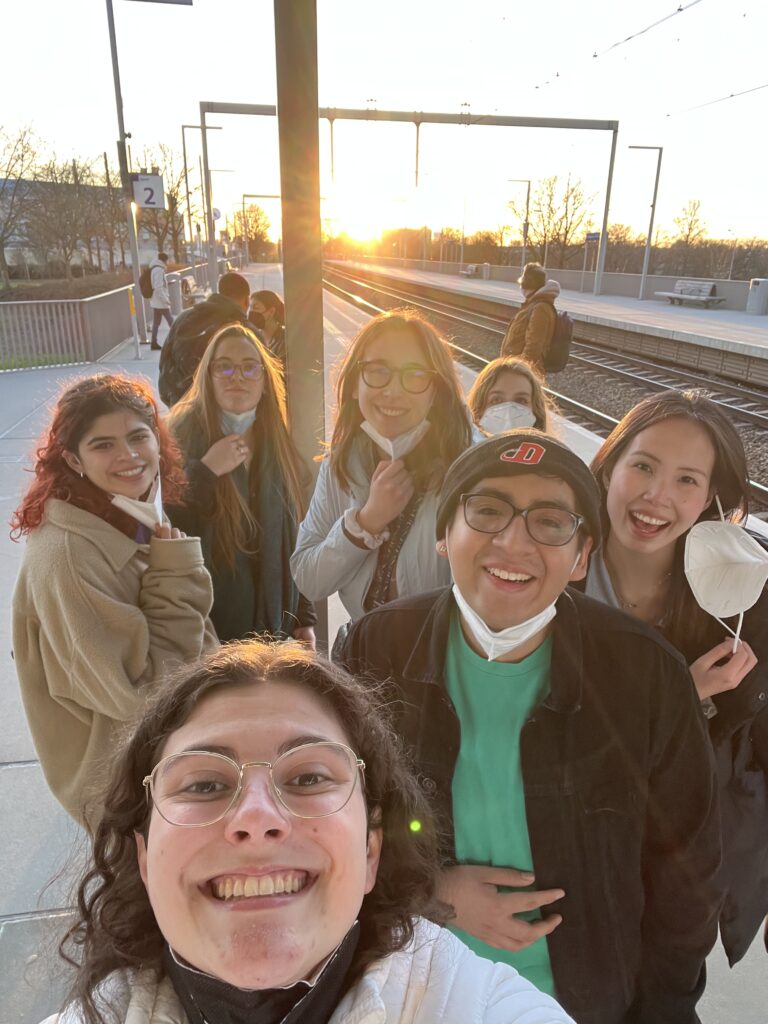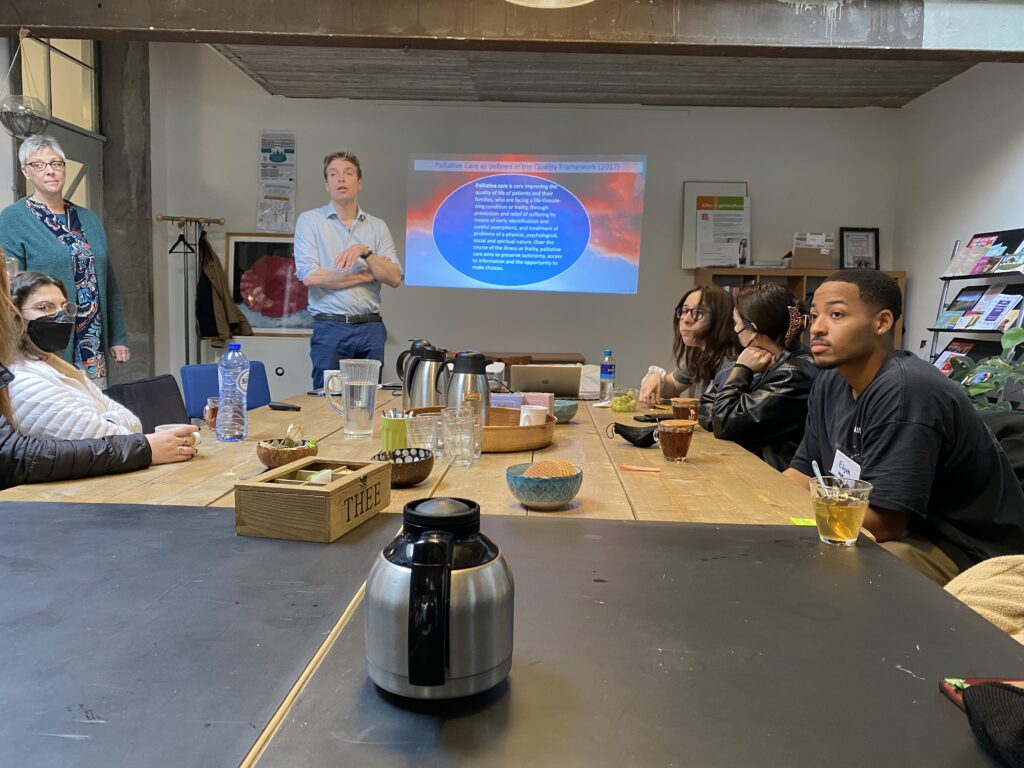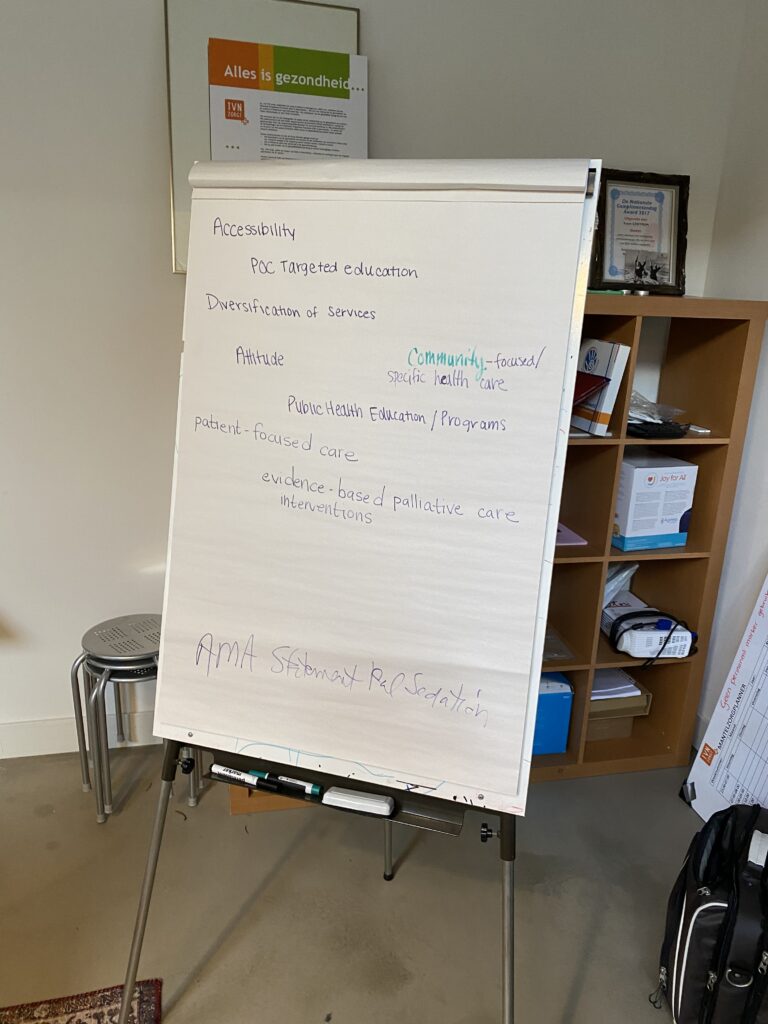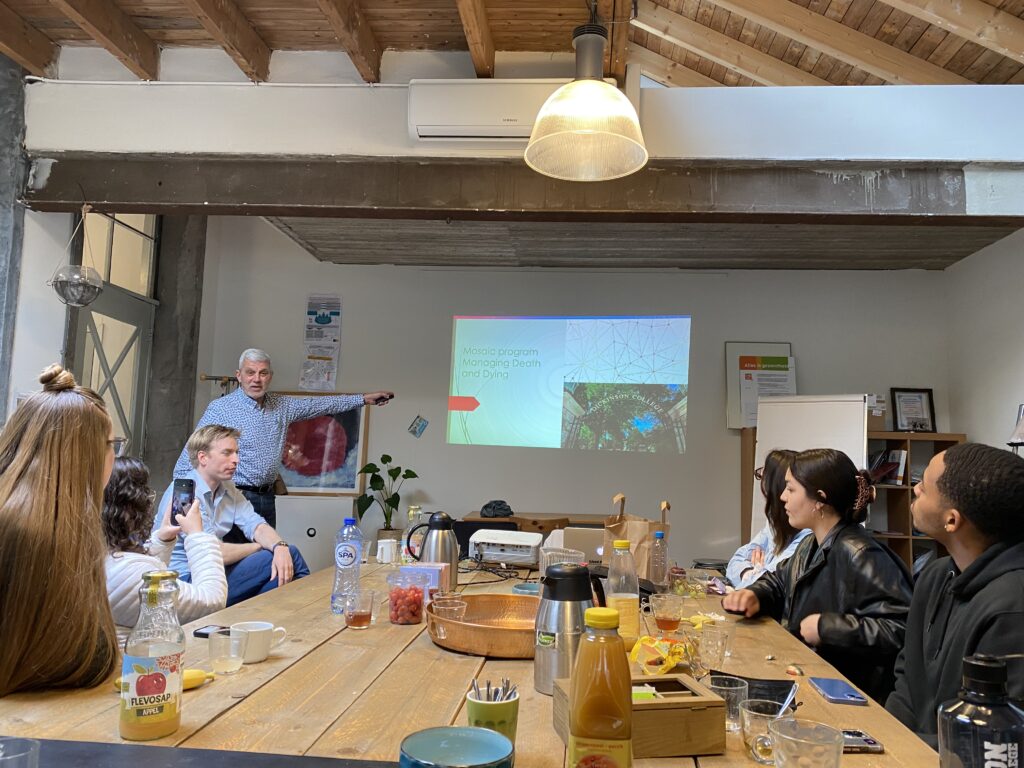Today started off with an early morning! Breakfast was at 7:30 and all were grateful for the delicious hotel meals that filled us up before the train whisked us away.

Students waiting for the train to Nijmegen!
The group travelled to Nijmegen in order to visit the offices of TVN, a home healthcare group. Palliative nurses from a few different local organizations gathered to meet with the students.
Jack and AnneMarie, two nurses from the TVN organization, gave a brief overview of the home healthcare group to start off their presentation to the class. We then watched a video on palliative care that showed how the end of life stages occur with no words, then discussed what palliative care truly is and how that can best be provided. The video was very impactful and can be viewed below:
We also discussed how to identify when an individual should enter palliative care. One of the main ways this is done is through the use of the surprise question. The surprise question is when the physician asks “Would I be surprised if this patient died within 6 months?” If the answer is no, the patient is eligible to enter palliative care.

Jack and AnneMarie giving the class a presentation on the TVM organization!
Jack went on to describe the main mission of the service, which is to identify every individual in the palliative care phase and ensure they receive high quality palliative care. Jack and AnneMarie then ended their presentation by going over a few palliative care cases, and evaluating how the care decisions were made.
Following the case studies, we took a break for lunch and enjoyed some delicious sandwiches, fresh fruit and pound cake. After lunch, our good friend Paul, an incredibly experienced palliative care nurse, gave his own presentation! In his presentation, he asked the class a very complex question: What would we change about palliative care within the US, and how would we actually accomplish that change? We split into small groups to answer the question, then wrote our answers on a whiteboard at the front of the room.
Here are our class answers to Paul’s question: what we would change about palliative care in the US?

After writing our answers on the board, the class had a very in-depth and complex discussion about how to improve palliative care in the US. I can personally say the conversation was incredibly engaging and truly made our class think more complexly than we have the entire trip.

Paul and students discussing how to effectively improve palliative care within the US, using all the knowledge we have picked up throughout the trip!
We took a short break after Paul’s workshop to take a walk and get some fresh air. Then, students gathered in the office to welcome William Yang.
William Yang has recently earned a PHD. He focuses on using yoga and theology to help cancer patients through the lens of palliative care. Yang spent some time connecting with the class, explaining his background, and engaging with the interests of the students. Then, he walked the group through a few exercises he teaches in his classes. It was amazing to see how such subtle movements can transform the body. This experience was a fantastic opportunity for students to see how crucial spiritual care is within palliative treatment.
After finishing up with presentations, students returned to Utrecht and went off in groups in search of dinner! There were so many options, it was hard to pick just one.
by Conor Wagner and Sofia Perrone
Leave a Reply